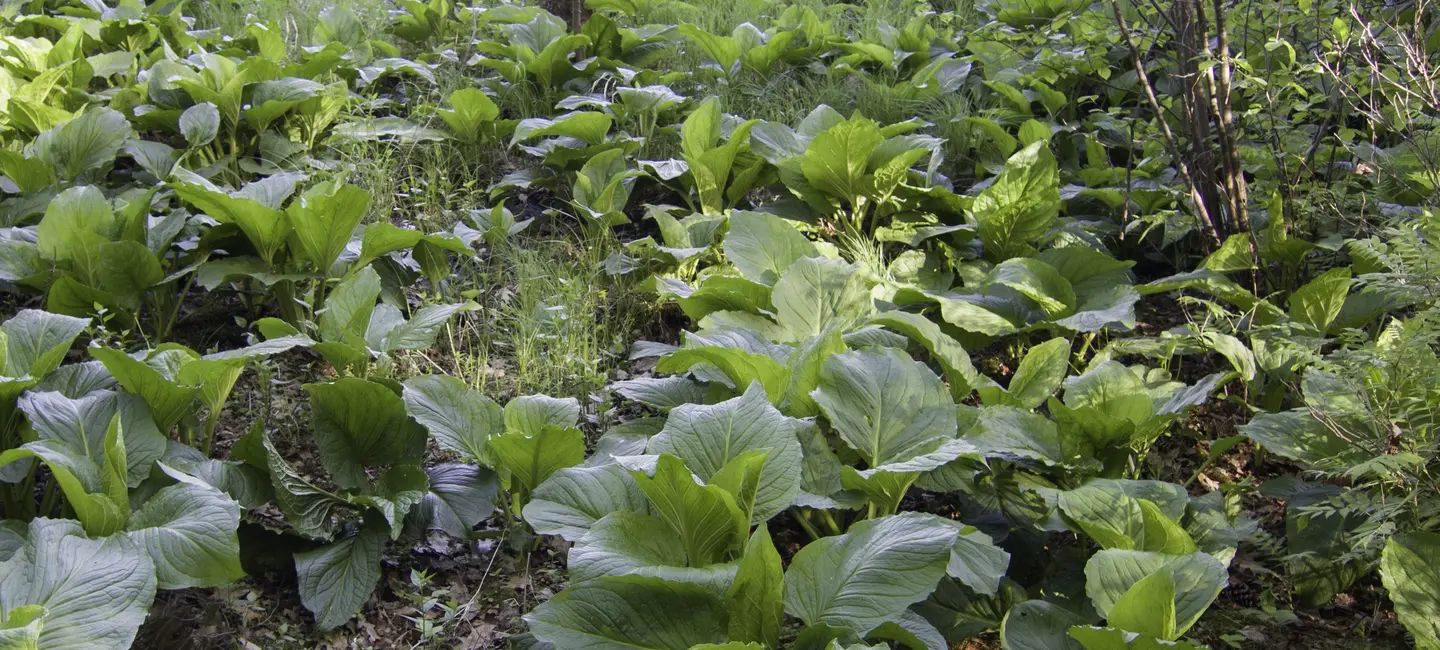
Skunk cabbage (Symplocarpus foetidus) is a plant native to swamps and wetlands in North America. It gets its name from the unpleasant odor it releases.
Skunk cabbage root is used as medicine. But it contains calcium oxalate, which can irritate the kidneys and increase the risk for kidney stones.
People use skunk cabbage for asthma, headache, seizures, toothache, wound healing, and many other purposes, but there is no good scientific evidence to support these uses.
Is It Effective?
There is interest in using skunk cabbage for a number of purposes, but there isn't enough reliable information to say whether it might be helpful.
Is it Safe?
When taken by mouth: Skunk cabbage is possibly safe when consumed in the amounts found in foods. There isn't enough reliable information to know if taking skunk cabbage in larger amounts as medicine is safe. Large amounts can cause nausea, vomiting, diarrhea, headache, dizziness, and other side effects.
Special Precautions & Warnings:
Pregnancy and breast-feeding: It is possibly unsafe to use skunk cabbage while pregnant or breast-feeding. It might affect the menstrual cycle or cause the uterus to contract, which might lead to a miscarriage.
Stomach or intestinal disorders (such as ulcers, ulcerative colitis, or Crohn disease): Taking skunk cabbage might make these conditions worse.
Kidney stones: Skunk cabbage contains oxalate, a chemical that the body uses to make kidney stones. Taking skunk cabbage might make kidney stones worse.
It is not known if Skunk Cabbage interacts with any medicines. Before taking Skunk Cabbage, talk with your healthcare professional if you take any medications.
Calcium: Skunk cabbage contains a chemical called oxalate that can bind with calcium in the stomach. Taking skunk cabbage along with calcium supplements can decrease the amount of calcium that the body absorbs.
Iron: Skunk cabbage contains a chemical called oxalate that can bind with iron in the stomach. Taking skunk cabbage along with iron supplements can decrease the amount of iron that the body absorbs.
Zinc: Skunk cabbage contains a chemical called oxalate that can bind with zinc in the stomach. Taking skunk cabbage along with zinc supplements can decrease the amount of zinc that the body absorbs.
Skunk cabbage has been traditionally used in infusions with honey, as a liquid extract, and also as a tincture. Speak with a healthcare provider to find out what type of product and dose might be best for a specific condition.
Charogne, Chou Puant, Chou Sconse, Col de Mofeta, Dracontium, Dracontium foetidum, Meadow Cabbage, Polecatweed, Skunkweed, Spathyema Foetida, Spathyéma Mouffette, Swamp Cabbage, Symplocarpe Chou-Puant, Symplocarpe Fétide, Symplocarpus foetidus, Tabac-du-Diable.
Information on this website is for informational use only and is not intended to replace professional medical advice, diagnosis, or treatment. While evidence-based, it is not guaranteed to be error-free and is not intended to meet any particular user’s needs or requirements or to cover all possible uses, safety concerns, interactions, outcomes, or adverse effects. Always check with your doctor or other medical professional before making healthcare decisions (including taking any medication) and do not delay or disregard seeking medical advice or treatment based on any information displayed on this website.
© TRC Healthcare 2024. All rights reserved. Use and/or distribution is permitted only pursuant to a valid license or other permission from TRC Healthcare.
